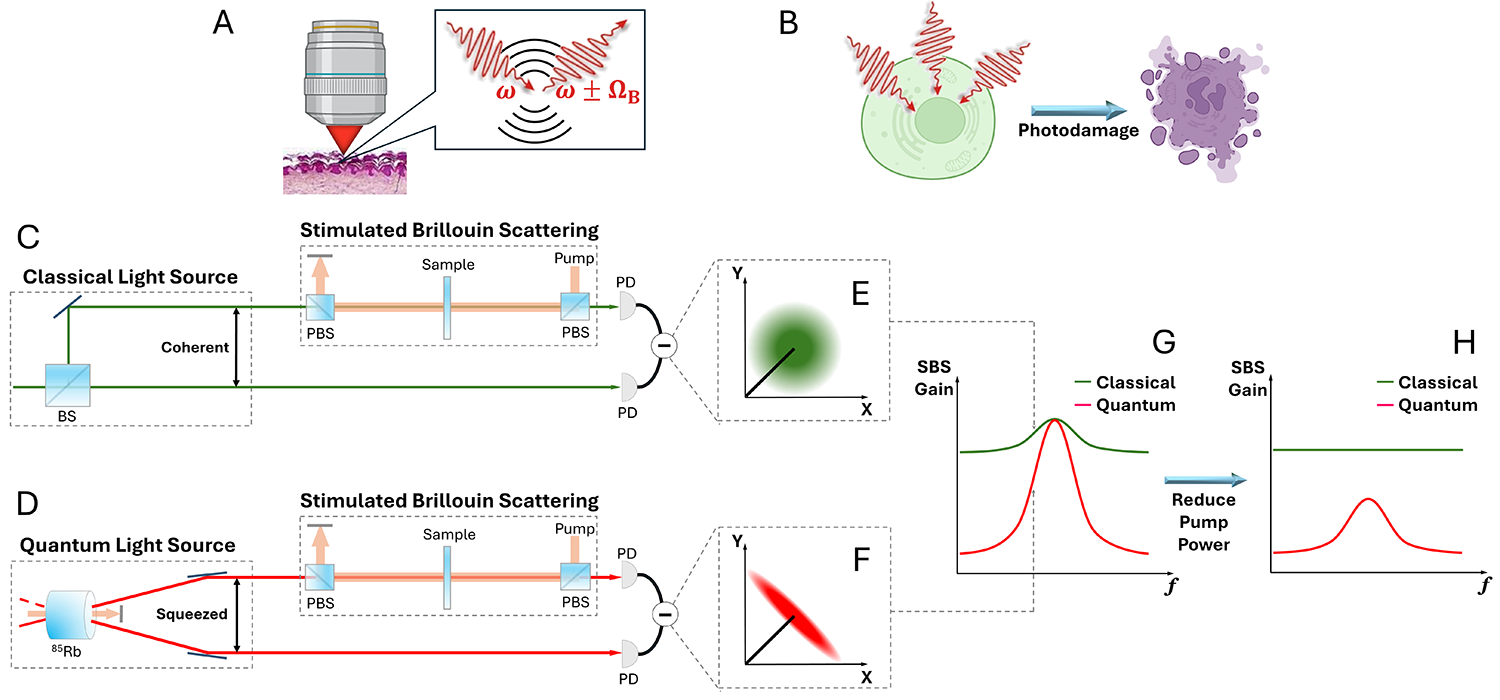Quantum Sensing
Quantum sensing leverages the principles of quantum mechanics to achieve enhanced measurement precision beyond classical limits. This involves utilizing concepts of superposition and entanglement, to measure physical quantities with high sensitivity and accuracy. By exploiting the intrinsic uncertainties due to quantum mechanics, a quantum sensor can amplify the signal related to the quantity being measured while suppressing noise thereby leading to improved measurement capabilities. Applications of quantum sensing include atomic clocks, magnetometry, gravimetry and bio-sensing.
In the theory group, we are interested in using multi-particle entangled states (GHZ states) and spin-squeezed states generated in Rydberg systems for quantum sensing.
In the experimental group, we focus on quantum optical sensing in both discrete-variable and continuous-variable regimes. This includes using entangled photon pairs and squeezed states to probe local quantities, such as biomedical optical properties and dynamics, as well as nonlocal distributed quantities. An ongoing effort involves leveraging the metropolitan-scale quantum network in downtown Chattanooga for distributed quantum sensing with Heisenberg scaling.
Principal Investigators: Rick Mukherjee, Tian Li

Figure: Squeezed light enhanced microscopic biomechanical imaging of cells and tissues taken from [9] Li’s Publications.